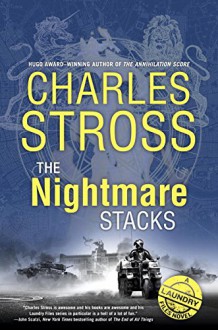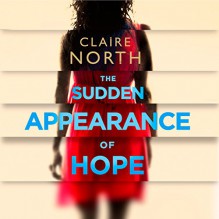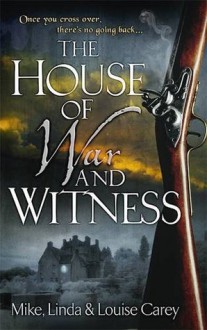The End of the Day
by Claire North
I cannot decide if this was the perfect book at the perfect time or the worst possible book at the worst possible time. And I don't know if it really matters. All I know is that as I watch the world I thought I knew fall apart, The End of the Day was a difficult and emotional but also an oddly cathartic read. It is an anguished, strident call to see the value of humanity, to see all people, even those who devalue others, as people. And if there's one thing we all need to remember right now, I think it is the maybe broken, maybe imperfect, but ultimately precious humanity that we all share.
The End of the Day is one of those books I think of as "stealth literature." Like basically all of the books written under the Claire North nom de plume, the story takes place in the real world, but with one fantastical element added: the Four Horsemen of the Apocalypse, and their Harbingers, are acknowledged and visible figures within the world. Death has an office in Milton Keynes from which he hires Charlie to be his Harbinger of Death. Superficially, the premise sounds like a cross between Mort and Good Omens, but the whimsical setup allows North to examine death and change and above all, what it means to be human. Charlie's job is to travel around the world, to talk to those chosen by Death, to bring them a gift, and to honour life:
"When you’re the Harbinger of Death, the thing that matters more than anything else, is seeing people. Not corpses, not killers or victims or soldiers or criminals or presidents or anything like that. You have to see…people. People who are afraid. People who have lived their lives, in their ways. You are the bridge. Death stands behind you, but you look forward, always forward, and humanity looks straight back at you."
I admit I was underwhelmed at first. I miss the lighthearted absurd fanciful creativity of the Matthew Swift series, but this crept up on me, slowly, gradually, ponderously, until I found myself with tears in my eyes. The story is episodic, almost picaresque, a meandering tune that slowly builds into a powerful crescendo.
I read this book with a lump in my throat as the news broke about America's decision to bomb Syria while refusing to take its refugees, as the US deported its first DREAMer, as America's climate change policy began to be dismantled, as budget slashes to arts and culture and history and science were declared, as the US dropped the "mother of all bombs" on Afghanistan, as Trump and Kim Jong-un posture and threaten their way towards possible annihilation. I read this book as I feared the end of democracy in my country, as I wondered if perhaps the idea of democracy had merely been a shared delusion, now shattered. As I read about war in Syria and warmongering in America and racism and hatred and genocide and death, death, death, about the ending of one world after another, I felt, as one character puts it:
"I look and all I hear is the beating of the drums and all I see is a world in which not to be one of us is to be something else. The scientist was right, reason is dead; the dream is dead; humanity has changed into something new and it is brutal."
But that hopelessness, that depression, that dehumanization, brought on as it is by compassion fatigue or news fatigue or bitterness with a world that deviates from our expectations-- that is not the point of the book. Despite all the death and misery, despite the failed battles and broken people, I think, at its core, this story is about seeing the humanity in each of us, even in those of us who do not see the humanity in others. Sure, there are a few missteps, a few tone-deaf moments. But at its core, the book is a celebration of a humanity, a desperate cry to all of us to see the humanity in one another and to build a more compassionate future.
"This is my city, my country, my home, this is my life, my battle, my war. This is my struggle to be seen as a person, to be human, this is my human body, this is my human life, this is my everything, this is my all, this is … [...] One day we will build Jerusalem."
Who would I recommend this book to? I'm honestly not sure. Don't go into it looking for an adrenaline rush, an amusing romp, or a tidy plot. But I found it poignant and cathartic and deeply meaningful. I don't know what it will be for you, but for me, it was a reminder of all the worlds that end, for good and ill, and that while I feel powerless, I am part of endings and beginnings,
big and small, and have the power to change them, if only the smallest bit.
"The world … no … a world is ending, and I was called to witness, yes? I was called to witness because I am part of the ending. My actions … I am the change. I am the future, and it is fitting, I think, that I should see the past too, yes?"
So for me, this book was about remembering the past, remembering the humanity in all of us, remembering to see people as people, not as something other. I don't know what it will mean for you, but there's only one way to find out.
~~I received this ebook through Netgalley from the publisher, Redhook Books, in exchange for my honest review. Quotes were taken from an advanced reader copy and while they may not reflect the final phrasing, I believe they speak to the spirit of the novel as a whole.~~
Cross-posted on Goodreads.

 Log in with Facebook
Log in with Facebook 









